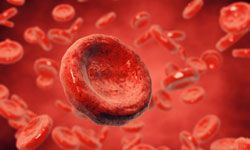Phase II Devimstat Study Expanded to Increase Access for Patients With Burkitts Lymphoma/Leukemia
A phase II study of experimental anti-mitochondrial drug devimstat in patients with relapsed/refractory Burkitt’s lymphoma/leukemia has been expanded to include patients at Massachusetts General Hospital in Boston, Massachusetts, according to a press release from Rafael Pharmaceuticals, Inc.

A phase II study (NCT03793140) of experimental anti-mitochondrial drug devimstat (CPI-613) in patients with relapsed/refractory Burkitt’s lymphoma/leukemia has been expanded to include patients at Massachusetts General Hospital in Boston, Massachusetts, according to a press release from Rafael Pharmaceuticals, Inc.1
Before expanding the study, participants were being treated at Memorial Sloan Kettering Cancer Center in New York, New York and City of Hope in Duarte, California. The expansion represents an effort to fulfill an unmet medical need for new treatment options for patients with the rare disease Burkitt’s lymphoma/leukemia.
“Currently no definitive second-line therapy exists for patients with relapsed Burkitt’s lymphoma,” said Ariela Noy, MD, an oncologist at Memorial Sloan Kettering Cancer Center and principal investigator on the devimistat clinical trial. “The expansion of the clinical trial across the country will help reach patients that have a clear unmet medical need for additional treatment options.”
The study is an open-label, multicenter, single-arm trial evaluating devimstat monotherapy in both patients with relapsed/refractory Burkitt lymphoma/leukemia or high-grade b-cell lymphoma with high-risk translocations. The primary endpoint of the study is overall response rate (ORR) over a time frame of 3 years. RECIL criteria will be used to determine ORR, which is defined by the rate of complete response, partial response, minor response, and stable disease (SD).
Participants receive 2,500 milligrams of devimstat intravenously. The drug is administered on days 1 through 5 for the first 2 14-day cycles. Devimstat is given on days 1 through 5 for all of the following cycles, which last for 21 days.
The study has an extensive list of eligibility criteria, of which the key requirements include histologically confirmed Burkitt lymphoma/leukemia or high-grade B-cell lymphoma with rearrangements of MYC and BCL2 and/or BCL6 confirmed at enrolling institution, an Eastern Cooperative Oncology Group (ECOG) performance status of 3 or higher, measurable disease per 2017 RECIL criteria or isolated bone marrow involvement, failure of at least 1 prior therapy, and failure after prior bone marrow transplant or transplant ineligibility.
Patients who received chemotherapy stem cell support in the 3 months prior to starting the trial, and those with serious medical illness, active central nervous system metastasis, uncontrolled bleeding or bleeding diathesis and a life expectancy of fewer than 2 months were excluded from the study.
“Burkitt’s lymphoma is a rare disease, with approximately 1,200 people in the United States diagnosed annually, so treatment options for these patients are very limited,” said Sanjeev Luther, president, and CEO of Rafael Pharmaceuticals. “The disease is highly aggressive and has a high rate of relapse. Expanding our clinical trial will increase access and create hope for patients and their loved ones across the country.”
In addition to the phase II study evaluating activity in patients with Burkitt’s lymphoma/leukemia, devimstat is also being studied in phase III clinical trials for pancreatic cancer (AVENGER 500, NCT03504423) and acute myeloid leukemia (AML) (ARMADA 2000, NCT03504410).
Devimstat was granted an Orphan Drug Designation by the FDA in June of 2018 for treatment of Burkitt’s lymphoma/leukemia. The agent has also been designated for the treatment of pancreatic cancer, AML, myelodysplastic syndrome, and peripheral T-cell lymphoma.
Results from the phase II study of devimstat will be presented on day 2 of the American Society of Hematology (ASH) Annual Meeting and Exposition which is being held in Orlando, Florida.
Reference:
Rafael Pharmaceuticals Announces Expansion of Phase 2 Trial of CPI-613® (devimistat) for Patients with Relapsed or Refractory Burkitt’s Lymphoma/Leukemia to Massachusetts General Hospital in Boston [press release]. Cranbury, New Jersey: Rafael Pharmaceuticasl, Inc; December 2, 2019.https://bit.ly/34MFd9o. Accessed December 3, 2019.